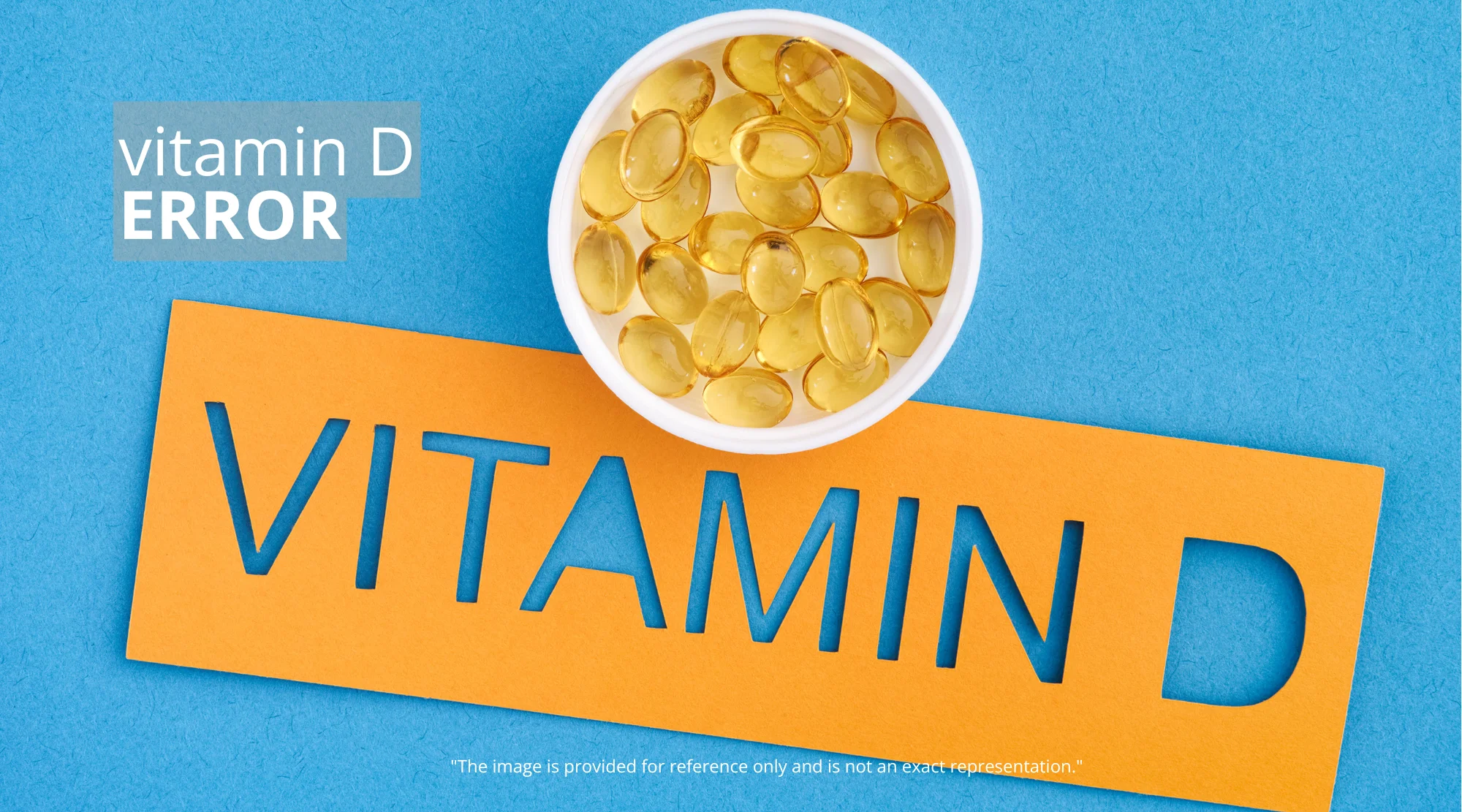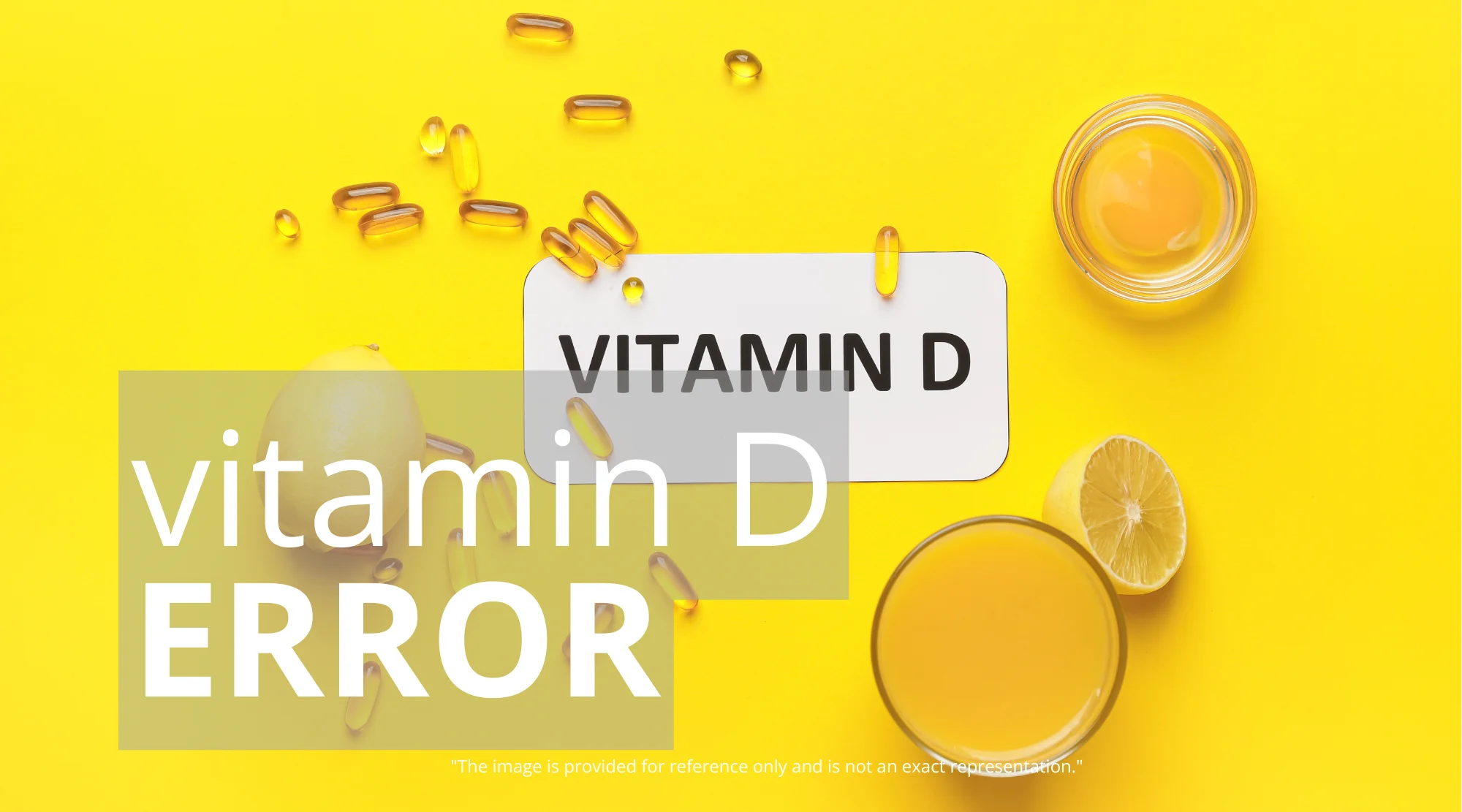Are you unintentionally sabotaging your vitamin D supplement efforts? A new study sheds light on a common mistake many people make when choosing their vitamin D, potentially rendering it less effective. Understanding the nuances of vitamin D forms and their absorption rates is crucial for maximizing its benefits for bone health, immune function, and overall well-being. Discover the surprising factor you need to consider before your next purchase to ensure you’re truly getting the most out of your vitamin D supplement.
The Vitamin D Dilemma: Are You Choosing Wisely?
Vitamin D, often called the “sunshine vitamin,” plays a vital role in numerous bodily functions. It’s essential for calcium absorption, which is crucial for maintaining strong bones and preventing osteoporosis. Furthermore, vitamin D supports the immune system, helps regulate mood, and may even protect against certain chronic diseases. However, many individuals struggle to maintain optimal vitamin D levels, leading to a reliance on supplements. But are all supplements created equal?
Unfortunately, no. The effectiveness of a vitamin D supplement hinges on several factors, including the form of vitamin D it contains and individual absorption capabilities. A recent study highlights a widespread misunderstanding about these factors, revealing that many people are unknowingly choosing supplements that may not be the most effective for them. Understanding this mistake is the first step towards optimizing your vitamin D intake and reaping its full benefits.
D2 vs. D3: Decoding the Vitamin D Alphabet Soup
Vitamin D isn’t a single entity; it exists in two primary forms: vitamin D2 (ergocalciferol) and vitamin D3 (cholecalciferol). Vitamin D2 is typically derived from plant sources, while vitamin D3 is produced in the skin upon exposure to sunlight and is also found in animal-based foods. While both forms can raise vitamin D levels in the blood, research suggests that vitamin D3 is generally more effective.
Studies have shown that vitamin D3 is more potent and longer-lasting than vitamin D2. This means that D3 is more efficient at raising and maintaining vitamin D levels, especially in individuals with insufficient sun exposure or those who have difficulty absorbing nutrients. The reason for this difference lies in how the body metabolizes each form.

Choosing between D2 and D3 is a critical first step. Opting for a D3 supplement, especially if you’re deficient, can significantly improve your vitamin D status compared to D2. Consult with your doctor or a registered dietitian to determine the best form and dosage for your individual needs. Remember to also consider your current diet. Are you getting enough of the world’s healthiest food? https://befullbehealth.com/2025/worlds-healthiest-food-discover-the-powerhouse-nutrient-source/
The Absorption Factor: It’s Not Just What You Take, But How You Take It
Even if you’re diligent about taking a D3 supplement, you might still be falling short of optimal levels if you’re not mindful of absorption. Vitamin D is a fat-soluble vitamin, meaning it requires fat for proper absorption in the digestive tract. Taking your vitamin D supplement on an empty stomach can significantly reduce its bioavailability, rendering it less effective.
The study highlighted in the original article likely emphasized this critical point. Many people take their vitamins first thing in the morning on an empty stomach, or at other times when they haven’t consumed any fat. This can lead to a significant portion of the vitamin D simply passing through the digestive system without being absorbed. To maximize absorption, take your vitamin D supplement with a meal that contains healthy fats, such as avocado, nuts, seeds, or olive oil. Consider also pairing it with high-protein, high-fiber snacks for sustained energy and health: https://befullbehealth.com/2025/high-protein-high-fiber-snacks-your-guide-to-sustained-energy-health/
Individual Factors: Understanding Your Unique Needs
While choosing D3 and taking your supplement with fat are crucial steps, individual factors can also influence vitamin D absorption and utilization. Certain medical conditions, such as Crohn’s disease, celiac disease, and cystic fibrosis, can impair fat absorption, making it more difficult to absorb vitamin D. Obesity can also affect vitamin D levels, as the vitamin can become trapped in fat tissue, reducing its availability in the bloodstream.
Additionally, age plays a role. As we age, our skin becomes less efficient at producing vitamin D from sunlight, and our kidneys become less efficient at converting vitamin D into its active form. People with darker skin pigmentation also require more sun exposure to produce the same amount of vitamin D as those with lighter skin. If you have any of these risk factors, it’s even more crucial to work with your healthcare provider to determine the appropriate vitamin D dosage and monitor your levels regularly. It’s important to stay proactive with your overall health. Even retro walking can help to boost your brain and help to prevent dementia with this simple trend: https://befullbehealth.com/2025/retro-walking-boost-brain-health-prevent-dementia-with-this-trend/
Beyond Supplements: Boosting Vitamin D Through Diet and Sunlight
While supplements can be a valuable tool for raising vitamin D levels, they shouldn’t be your only source. Diet and sunlight are also important contributors. Fatty fish, such as salmon, tuna, and mackerel, are excellent sources of vitamin D. Egg yolks and fortified foods, such as milk and cereal, also provide some vitamin D, though often in smaller amounts.
Sunlight is arguably the most natural and efficient way to boost vitamin D levels. However, the amount of sun exposure needed varies depending on factors such as skin pigmentation, geographic location, and time of year. As a general guideline, aim for 10-30 minutes of midday sun exposure several times a week, without sunscreen. Of course, it’s crucial to balance sun exposure with sun safety measures to protect against skin cancer.

Testing Your Levels: Knowing Your Numbers
The only way to know for sure whether you’re getting enough vitamin D is to have your levels tested. A simple blood test can measure the amount of vitamin D in your blood, providing valuable insights into your vitamin D status. The optimal vitamin D level is generally considered to be between 30 and 50 ng/mL.
If your levels are below this range, your healthcare provider may recommend a higher dose of vitamin D supplementation. Regular monitoring is essential to ensure that you’re maintaining optimal levels and to adjust your dosage as needed. Don’t guess – test. Knowing your numbers empowers you to take control of your health and make informed decisions about your vitamin D intake.
The Synergistic Effect: Combining Vitamin D with Other Nutrients
Vitamin D doesn’t work in isolation. It interacts with other nutrients to support overall health and well-being. For example, vitamin K2 plays a crucial role in directing calcium to the bones and teeth, preventing it from accumulating in the arteries. Magnesium is also essential for vitamin D metabolism and activation.
Consuming a balanced diet rich in these nutrients can enhance the benefits of vitamin D. Consider incorporating foods like leafy green vegetables (rich in vitamin K2), nuts, seeds, and whole grains (rich in magnesium) into your diet to support optimal vitamin D function. Just as the Mediterranean Diet can contribute to a longer, healthier life. https://befullbehealth.com/2025/mediterranean-diet-your-guide-to-a-longer-healthier-life/
Conclusion: Optimize Your Vitamin D for a Healthier You
The key to reaping the full benefits of a vitamin D supplement lies in making informed choices. Choosing vitamin D3 over D2, taking your supplement with fat, understanding individual factors, and monitoring your levels are all essential steps. By addressing these considerations, you can optimize your vitamin D intake and support your bone health, immune function, and overall well-being.
Don’t let a simple mistake sabotage your efforts. Take control of your health by educating yourself about vitamin D and working with your healthcare provider to determine the best approach for you. Remember, small changes can make a big difference in your health and happiness.











Post Comment